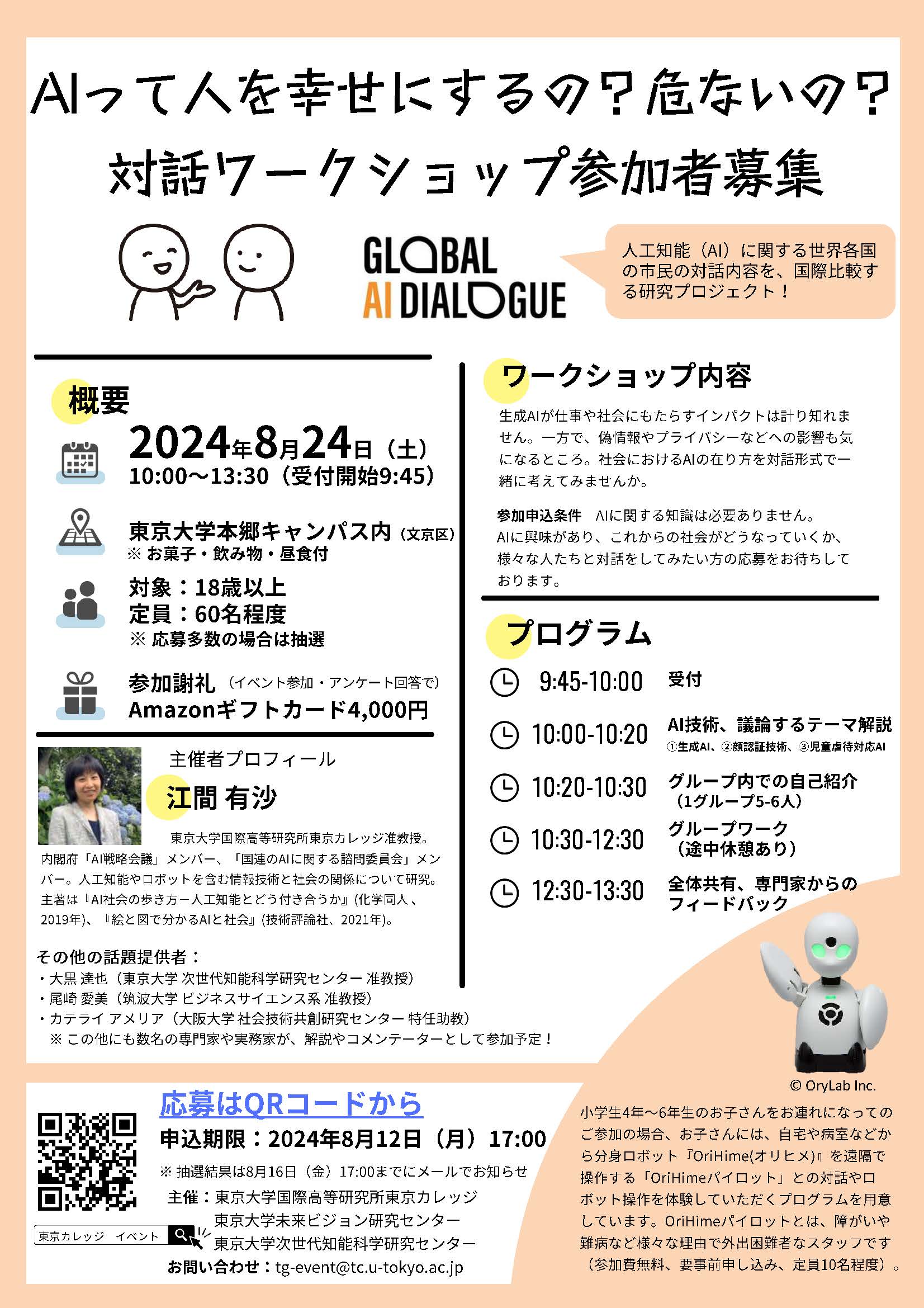”Does AI make people happy?” ”Is it dangerous?” – Global AI Dialogue Call for Participants in Interactive workshop on Artificial Intelligence

Click here to read the event report.
| Date(s) | Saturday, 24 August, 2024, 10:00 - 13:30 (Doors open: 9:45) |
|---|---|
| Venue |
Hongo Campus, The University of Tokyo (location details will be provided to participants) For registration and more detailed information, please see the Japanese registration page. |
| Registration | Pre-registration required |
| Language | Japanese only |
| Abstract |
There is growing social concern about the convenience and dangers of artificial intelligence (AI) technologies, including generative AI. In particular, the impact of AI used in the public domain, such as education and welfare, is far-reaching, so it is not only relevant to the government and companies, but also to the lives of citizens. Therefore, it will be necessary for citizens to learn about the use and impact of AI and to get along with it.
This workshop will deal with three case studies: (1) AI for generating text and images, (2) facial recognition technology, and (3) child abuse response systems, providing participants with an opportunity to gain more in-depth knowledge and information about the use and impact of AI. At the same time, participants will share their perspectives on their expectations and concerns about AI.
The Global AI Dialogue will be held simultaneously in other countries, such as Germany and Nigeria, within the same framework, to better understand how citizens in other countries perceive AI. |
| Contact | tg-event@tc.u-tokyo.ac.jp |
| Organizers |
Tokyo College of International Advanced Research Institute, The University of Tokyo Institute for Future Initiatives, The University of Tokyo Next Generation Artificial Intelligence Research Center, The University of Tokyo |
| Co-organizer | Technical University of Munich, Germany |
| Collaboration | B'AI Global Forum, The University of Tokyo |















